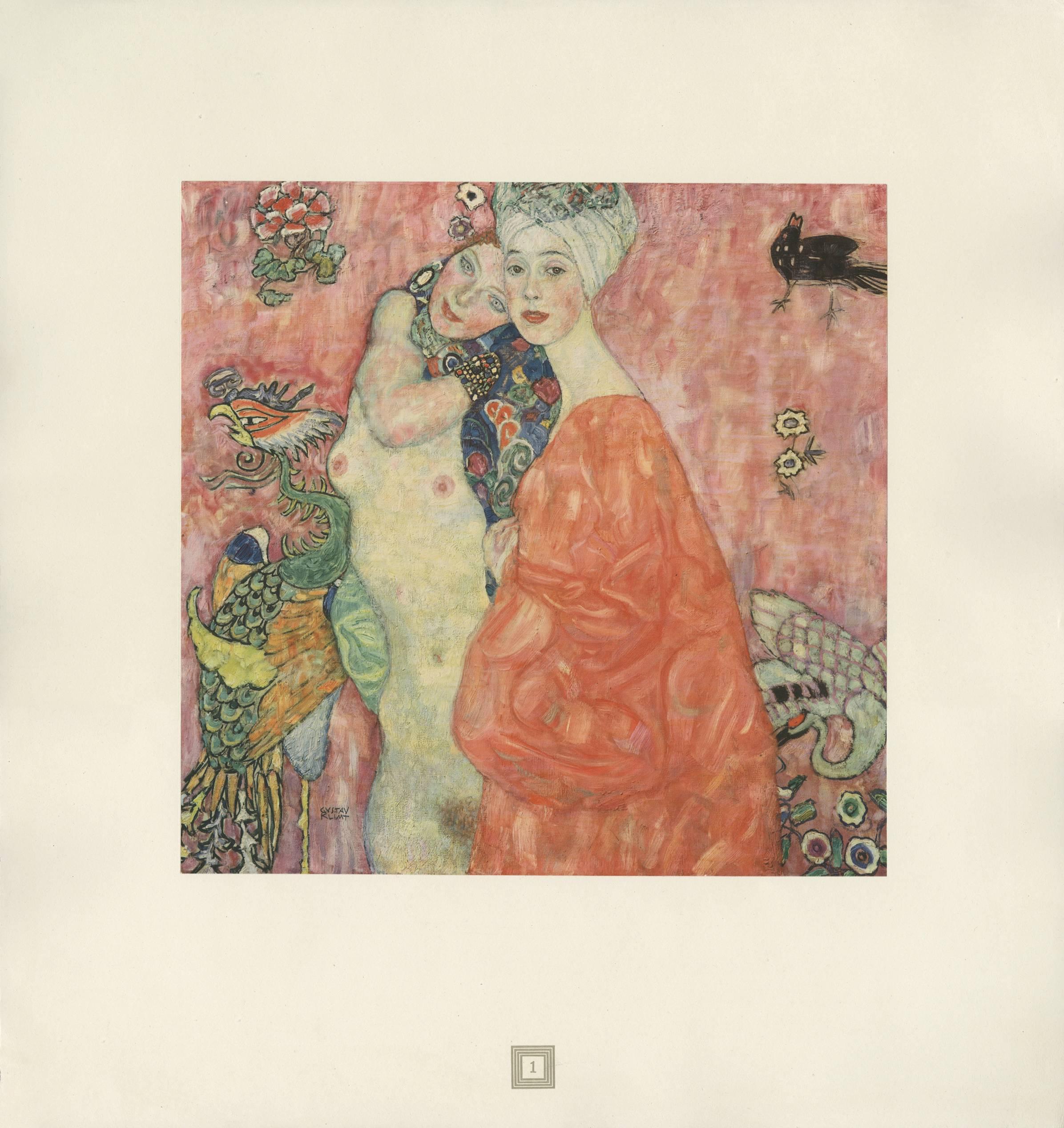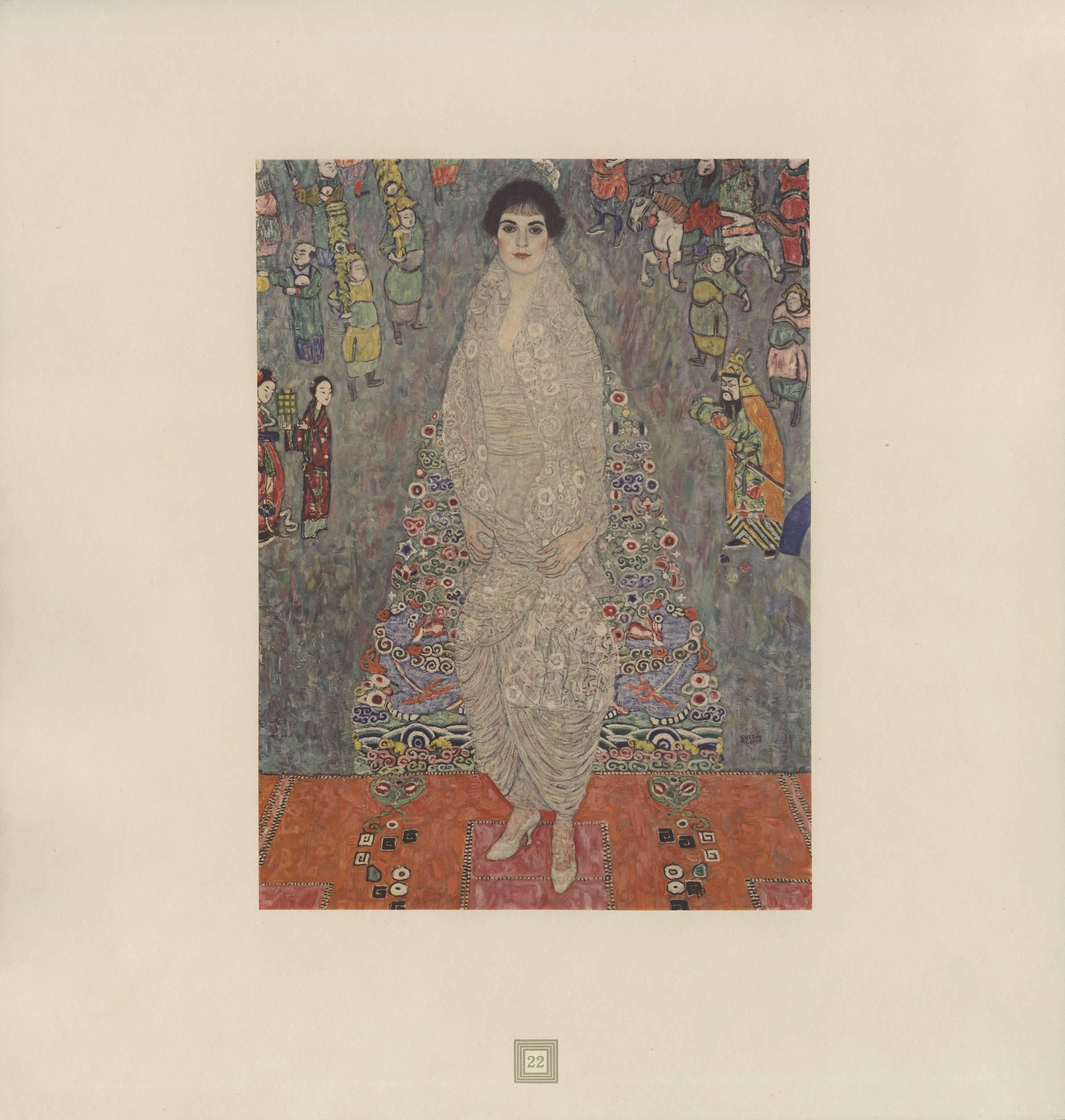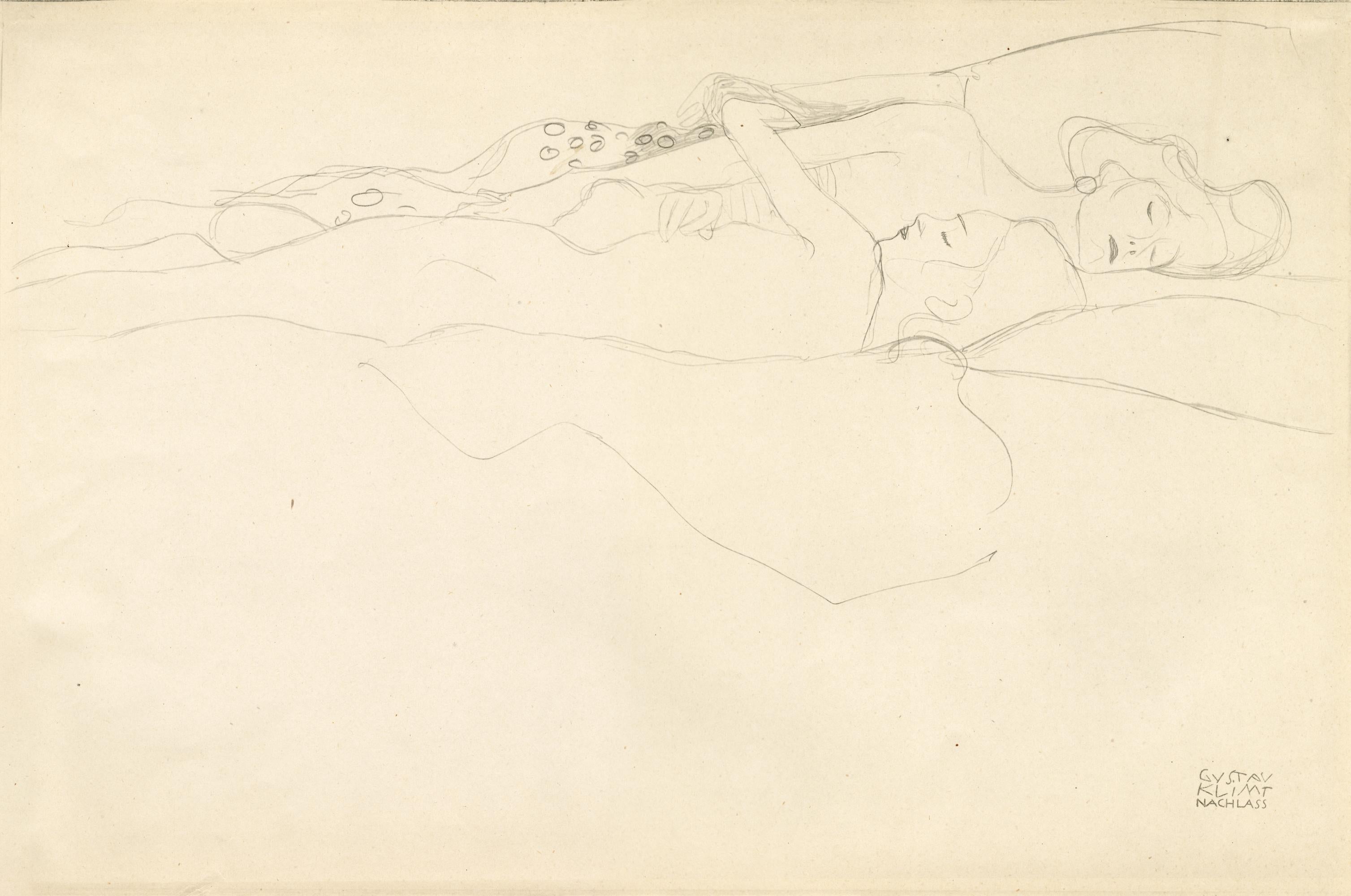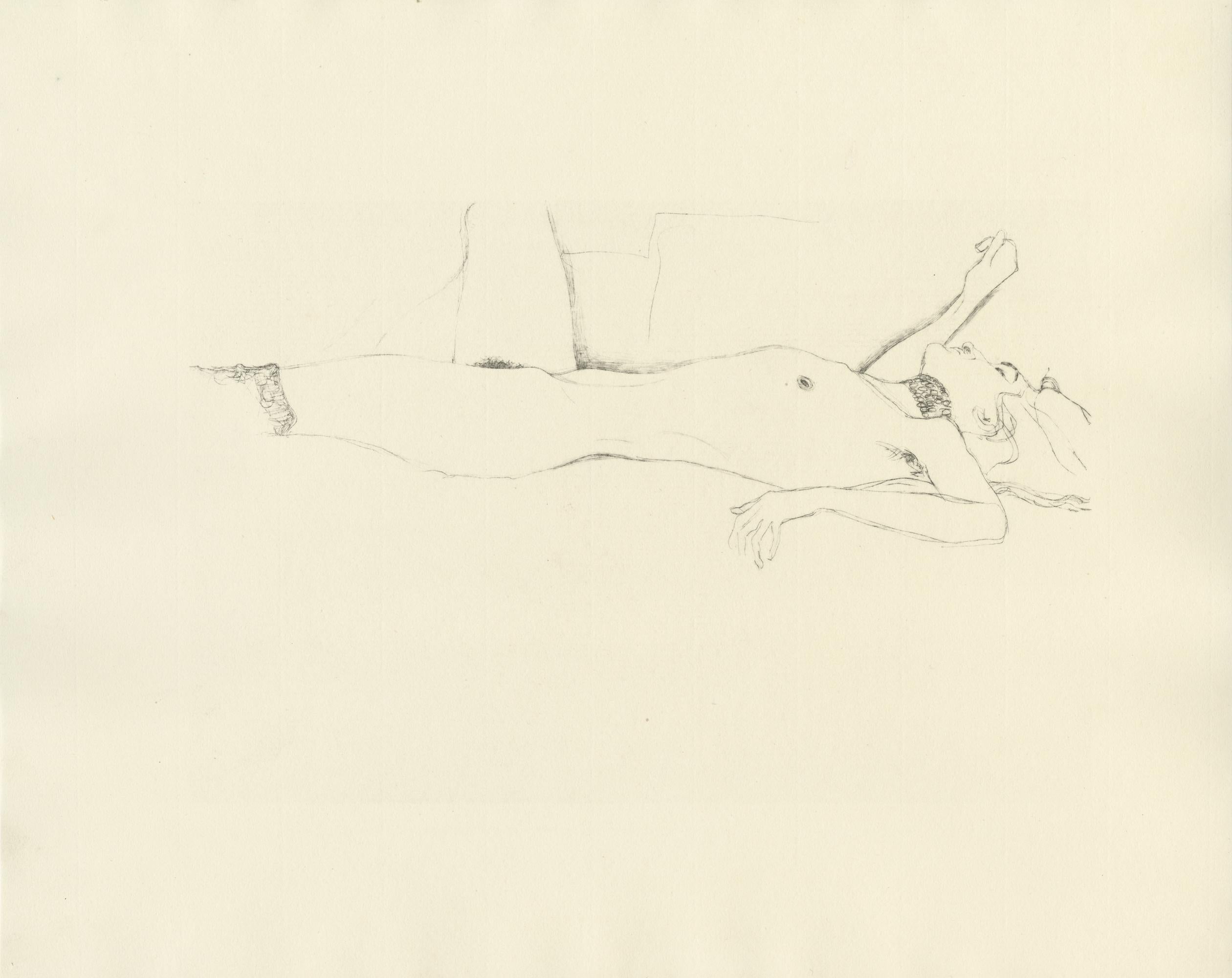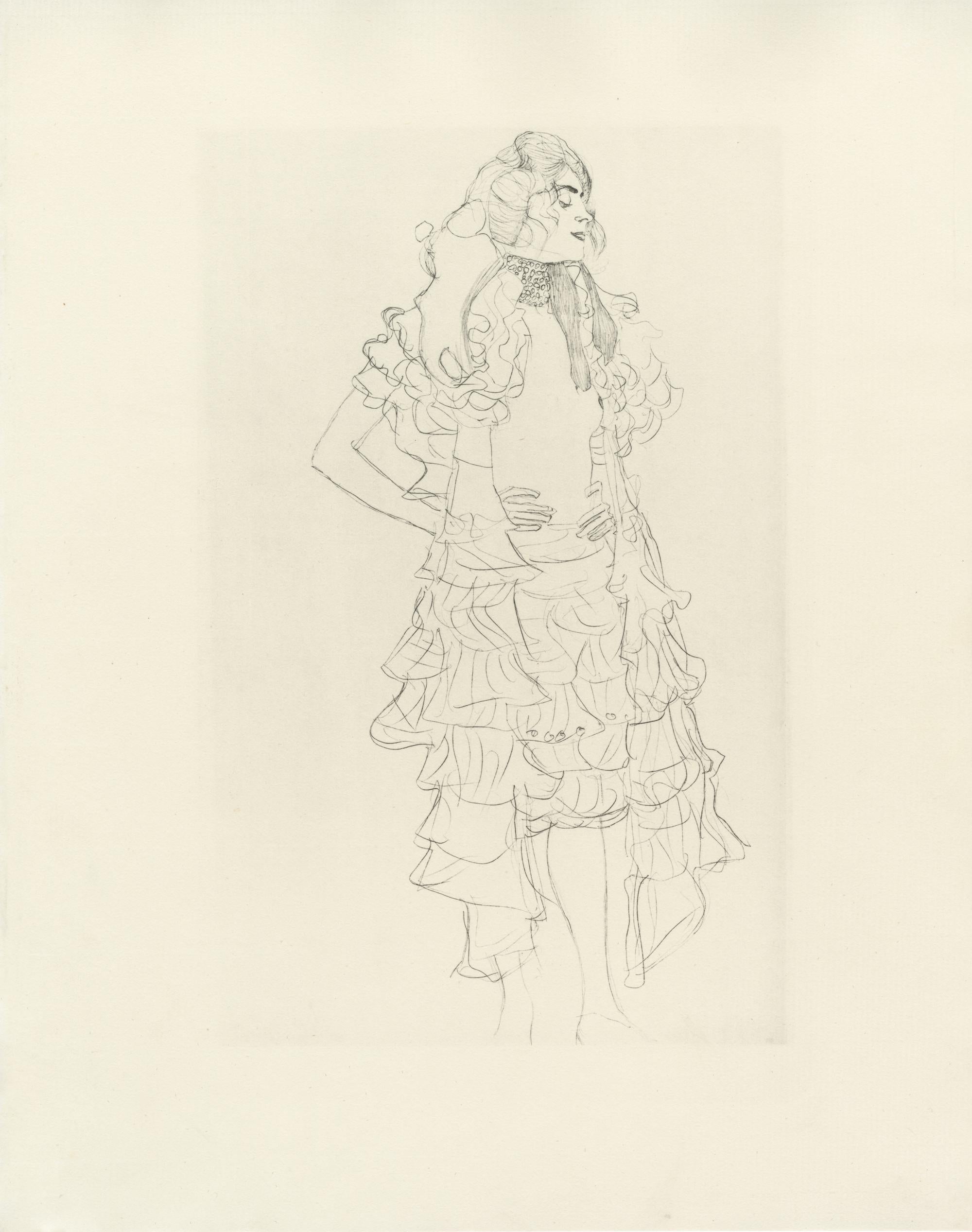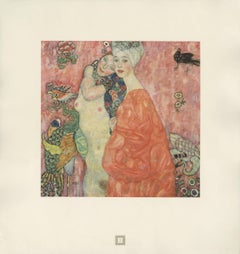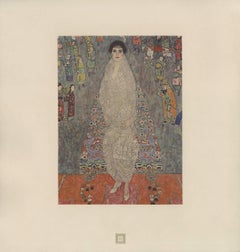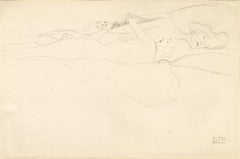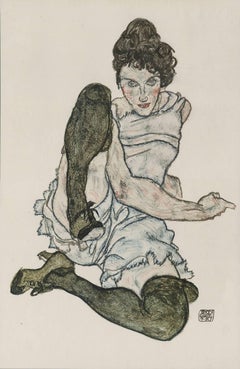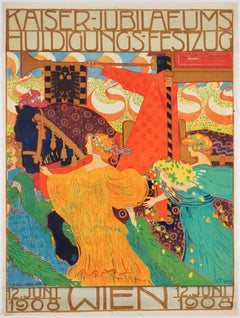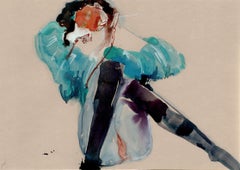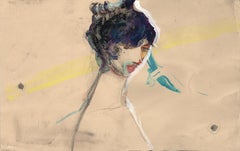Items Similar to "Two Sleeping Women" by Gustav Klimt - Original Print from Courtesans Folio
Want more images or videos?
Request additional images or videos from the seller
1 of 6
Gustav Klimt"Two Sleeping Women" by Gustav Klimt - Original Print from Courtesans Folio1907
1907
About the Item
Plate #10 from Gustav Klimt's 1907 "Dialogues of the Courtesans" portfolio, consisting of 15 collotypes on cream japon paper. The drawings in this folio are said to be studies for Klimt's well-known Water Serpents paintings.
This print is from folio 263/450.
Publisher: Julius Zeitler, Leipzig.
Printer: W. Drugulin, Leipzig.
From the Toledo Museum of Art:
When not creating paintings for exhibitions and commissions, Gustav Klimt produced over 4,000 personal drawings and sketches. His drawings were frequently highly erotic—even graphic and sexually taboo—in nature. In them Klimt often rejected the decorativeness and detail of his paintings, working instead in a looser and more minimal style. The 15 drawings presented in this publication of Lucian’s Dialogue of Greek Courtesans, chosen by translator and publisher Franz Blei (who, as a writer, was known for eroticism in his work as well), are virtually unrelated to the text, as the dialogue discusses the role of courtesans (i.e. prostitutes) in society. Klimt’s drawings instead portray female eroticism in varying degrees of explicitness, a subject that would bring him notoriety and complaints of obscenity.
- Creator:Gustav Klimt (1862 - 1918, Austrian)
- Creation Year:1907
- Dimensions:Height: 11 in (27.94 cm)Width: 13.75 in (34.93 cm)
- Medium:
- Movement & Style:
- Period:
- Condition:
- Gallery Location:Chicago, IL
- Reference Number:1stDibs: LU467314425292
Gustav Klimt
Gustav Klimt was an Austrian symbolist painter and a prominent member of the Vienna Secession movement. Klimt's primary subject was the female body and his works are mostly erotic in nature.
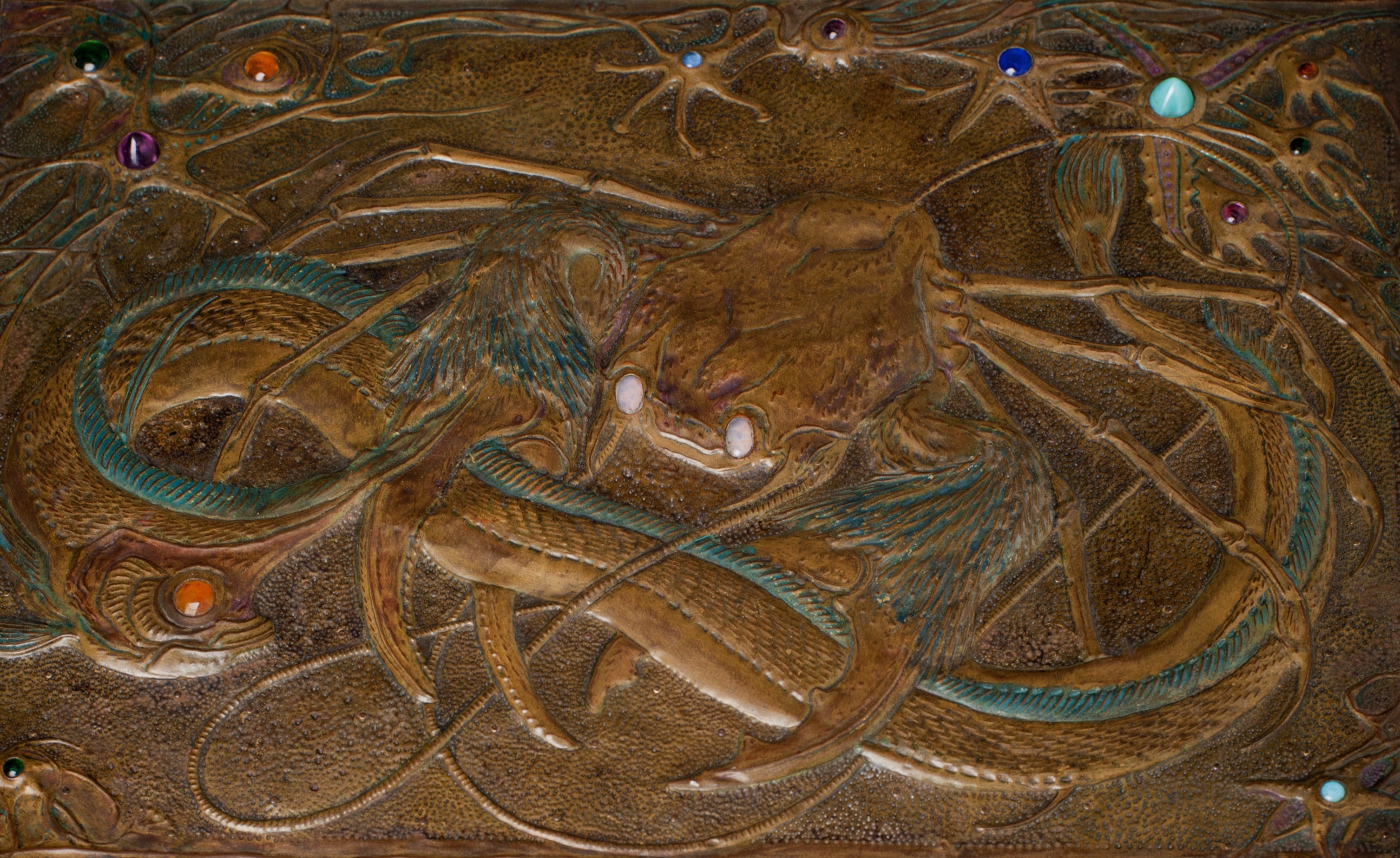
About the Seller
5.0
Vetted Professional Seller
Every seller passes strict standards for authenticity and reliability
Established in 2013
1stDibs seller since 2016
91 sales on 1stDibs
Typical response time: 2 hours
- ShippingRetrieving quote...Shipping from: Chicago, IL
- Return Policy
Authenticity Guarantee
In the unlikely event there’s an issue with an item’s authenticity, contact us within 1 year for a full refund. DetailsMoney-Back Guarantee
If your item is not as described, is damaged in transit, or does not arrive, contact us within 7 days for a full refund. Details24-Hour Cancellation
You have a 24-hour grace period in which to reconsider your purchase, with no questions asked.Vetted Professional Sellers
Our world-class sellers must adhere to strict standards for service and quality, maintaining the integrity of our listings.Price-Match Guarantee
If you find that a seller listed the same item for a lower price elsewhere, we’ll match it.Trusted Global Delivery
Our best-in-class carrier network provides specialized shipping options worldwide, including custom delivery.More From This Seller
View AllMax Eisler Eine Nachlese folio "Girlfriends II" collotype print
By (after) Gustav Klimt
Located in Chicago, IL
After Gustav Klimt, Max Eisler #1, Die Freundinnen II; multi-color collotype after 1916/17 painting in oil on canvas which was destroyed by fire in May 1945 at Immendorf Castle Lower Austria.
Eisler’s choice to begin his 1931 portfolio of works by Klimt with Girlfriends II was both bold and prescient. Just 14 years later, the painting was tragically destroyed in a fire. With such a loss, this rare and exquisite image is all the more valuable by virtue of having been made in color. In works from his late period, Klimt continued his fascination with exploring female dynamics and their various forms of love. Girlfriends II is a fine example of how space, color and ornament play a noticeable role in the evolution of his symbolic language. Wide swaths of space in the background as well as the two female forms create the structure. Klimt’s strong brushstrokes show a painterly quality and a new move toward abstraction which feels very far away from his earlier work. Nor should Klimt’s economy of line be overlooked. His draughtsmanship is what infuses the female bodies with movement, emotion and a profundity of life. Both women confront the viewer’s gaze unselfconsciously, as if they are modern-day Viennese women stepping out of a Klimtesque ukiyo-e print. Characteristic of this late period, Klimt uses ornament...
Category
1930s Vienna Secession Figurative Prints
Materials
Paper
Max Eisler Eine Nachlese folio “Portrait of Baroness Bachofen-Echt” collotype
By (after) Gustav Klimt
Located in Chicago, IL
After Gustav Klimt, Max Eisler #22, Bildnis Baronin Bachofen-Echt; multi-color collotype after 1914-1916 painting in oil on canvas.
GUSTAV KLIMT EINE NACHLESE (GUSTAV KLIMT AN AFTERMATH), a portfolio of 30 collotypes prints, 15 are multi-color and 15 are monochrome, on chine colle paper laid down on heavy cream-wove paper with deckled edges; Max Eisler, Editor-Publisher; Osterreichischer Staatsdruckerei (Austrian State Printing Office), Printer; in a limited edition of 500 numbered examples of which: 200 were printed in German, 150 were printed in French and 150 were printed in English; Vienna, 1931.
2018 marks the 100th anniversary of Gustav Klimt’s death. It is a fitting time to reflect upon the enduring legacy and deep impact of his art. Recognizing this need for posterity with uncanny foresight, the publication of Gustav Klimt: An Aftermath (Eine Nachlese) provides a rare collection of work after Klimt which has proven to be an indispensable tool for Klimt scholarship as well as a source for pure visual delight.
Approximately 25 percent of the original works featured in the Aftermath portfolio have since been lost. Of those 30, six were destroyed by fire on 8 May 1945. On that fateful final day of WWII, the retreating Feldherrnhalle, a tank division of the German Army, set fire to the Schloss Immendorf which was a 16th century castle in Lower Austria used between 1942-1945 to store objects of art. All three of Klimt’s Faculty Paintings: Philosophy, Medicine and Jurisprudence (1900-1907), originally created for the University of Vienna, were on premises at that time. Also among the inventory of Klimt paintings in storage there was art which had been confiscated by the Nazis. One of the most significant confiscated collections was the Lederer collection which featured many works by Gustav Klimt such as Girlfriends II and Garden Path with Chickens...
Category
1930s Vienna Secession Figurative Prints
Materials
Archival Paper
Gustav Klimt "Study for Water Serpents" collotype from Funfundzwanzig folio
By Gustav Klimt
Located in Chicago, IL
Title page numbered: 263/450
Category
1910s Vienna Secession Figurative Prints
Materials
Paper
E. Strache, Handzeichnungen folio, "Female Model, Seated" Collotype plate
By (after) Egon Schiele
Located in Chicago, IL
After Egon Schiele (1890 – 1918), AUSTRIA
“ART CANNOT BE MODERN, ART IS PRIMORDIALLY ETERNAL.” -SCHIELE
Defiantly iconoclastic in life and art, Egon Schiele is esteemed for his mas...
Category
1920s Vienna Secession Figurative Prints
Materials
Paper
"Woman w/Lace Garment" by Gustav Klimt - Original Print from Courtesans Folio
By Gustav Klimt
Located in Chicago, IL
Plate #6 from Gustav Klimt's 1907 "Dialogues of the Courtesans" portfolio, consisting of 15 collotypes on cream japon paper. The drawings in this folio are said to be studies for Klimt's well-known Water Serpents paintings...
Category
Early 1900s Vienna Secession Figurative Prints
Materials
Paper
"Woman Leaning Over Chair" by Gustav Klimt - Original Print from Courtesan Folio
By Gustav Klimt
Located in Chicago, IL
Plate #8 from Gustav Klimt's 1907 "Dialogues of the Courtesans" portfolio, consisting of 15 collotypes on cream japon paper. The drawings in this folio are said to be studies for Kli...
Category
Early 1900s Vienna Secession Figurative Prints
Materials
Paper
You May Also Like
Original Vintage Secession Poster celebrating the emperor's jubilee
Located in Zurich, CH
Original Vintage Poster by the Austrian artist Ferdinand Ludwig Graf, a member of the Hagenbund. This Viennese artist association moved as soon a...
Category
Early 1900s Vienna Secession Figurative Prints
Materials
Paper
erotic print nu poster
Located in Roma, GB
nude print
limited edition
print on paper
hand signed
certificate of authenticity
'Thanks to this psychological analysis, my paintings show emotions that people never experience ...
Category
21st Century and Contemporary Vienna Secession Figurative Prints
Materials
C Print, Color, Digital, Paper
nude erotic print
Located in Roma, GB
erotic print
female figure captured in a moment of an intimate delight. Flame orange color, shining blue, and clown-like intriguing face. lack and white.
Parts of her body appear...
Category
21st Century and Contemporary Vienna Secession Figurative Prints
Materials
Paper, Color, Digital
$1,346 Sale Price
35% Off
portrait Angie
Located in Roma, GB
free shipping standard parcel available
to be confirmed while submitting the order
artist: Anastasia Aureum
paper print
limited edition
hand signed
About the artwork:
This portra...
Category
21st Century and Contemporary Vienna Secession Figurative Prints
Materials
Paper, Color, Digital
Mädchen am Fenster. 1906-08.
By Oskar Kokoschka
Located in New York, NY
Mädchen am Fenster. 1906-08. Color lithograph printed on smooth card stock. Full margins. Tipped into a later presentaion folder, signed by the artist in pencil, on the recto. Published by the Wiener Werkstätte, Vienna, with the printed postcard text on verso. Among Kokoschka's earliest prints were a series of 14 postcards, the current work and the following lot that he produced for the Wiener Werkstätte. Wingler/Welz 4.
Oskar Kokoschka was an Austrian artist, poet and playwright best known for his intense expressionistic portraits...
Category
Early 1900s Vienna Secession Figurative Prints
Materials
Lithograph
Der Polster
By Max Kurzweil
Located in New York, NY
Kurzweil, Maximilian. Der Polster, 1903. Color woodcut on japon. Included as an insert in Pan. Unsigned. Framed.11 1/4 x 10 1/4. 1
Ref: Hofstatter, p. 241; Pabst, p. 154.
Maximillian Kurzweil was the co-founder of the Vienna Secession in 1897 and editor and illustrator of the influential Secessionist magazine Ver Sacrum...
Category
Early 1900s Vienna Secession Figurative Prints
Materials
Lithograph
